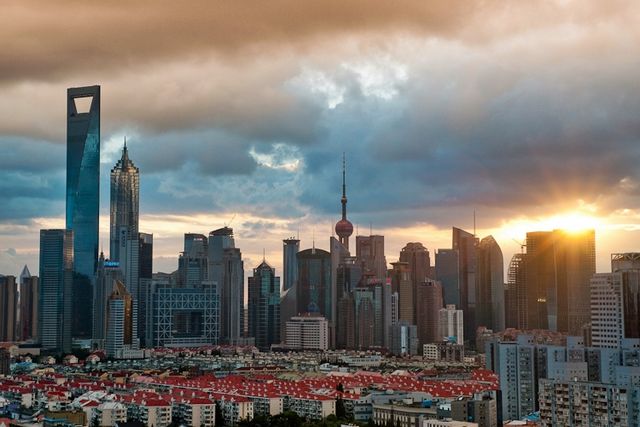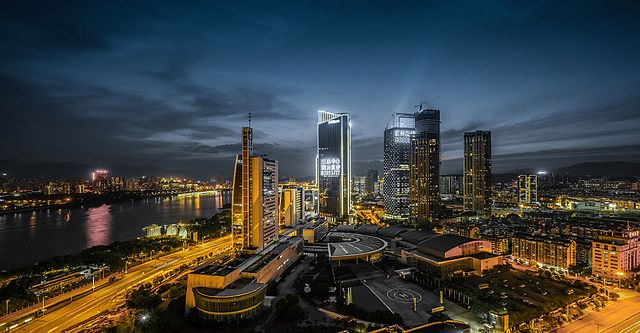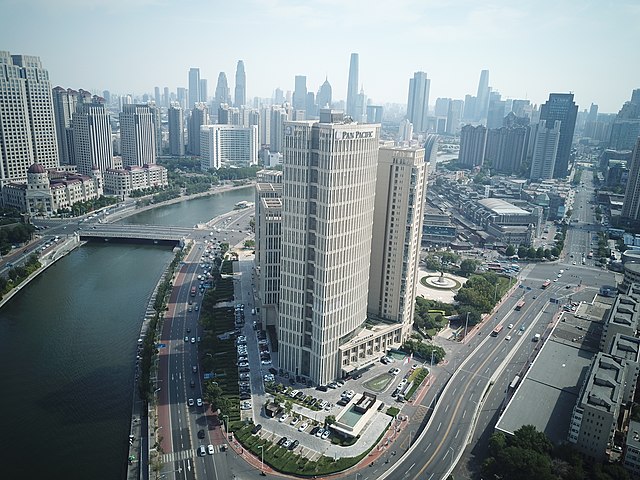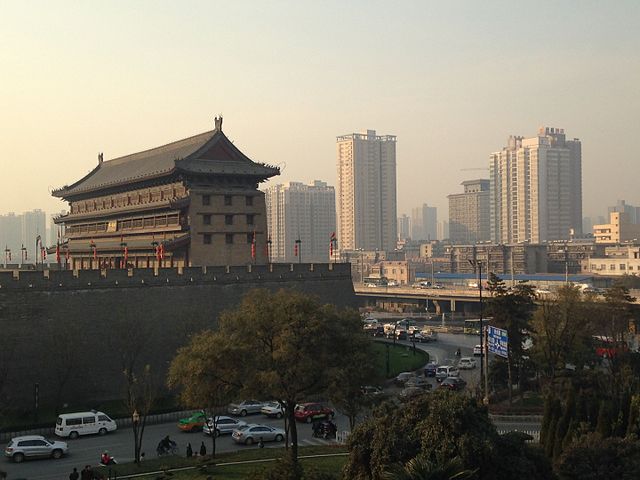
A photo of Shangai, China by Suvcon – Wikimedia commons
10 Very useful Mandarin Phrases you should know before traveling to China
The grammar of Standard Chinese or Mandarin shares many features with other varieties of Chinese. The language almost entirely lacks inflection. Inflection is a process of word formation in which a word is modified to express different grammatical categories.
These categories include tense, case, voice, aspect, person, number, gender, mood, animacy, and definiteness. Chinese is chiefly a head-final language. The head is the element that determines the category of a phrase.
There is no alphabet in the Chinese language. Therefore, the language is made up of tens of thousands of characters. These characters are made up of specific strokes, rather than a combination of letters. If you often watch Chinese movies, am quite sure that most of the time you float because you can’t comprehend nor spell the Chinese dialect.
Chinese characters are so complex, that pinyin was developed by Chinese linguists as an official romanization system for the pronunciation of Mandarin. The 26 English alphabets are used in the translation of Chinese. In the article are ten very useful Mandarin phrases you should know before traveling to China.
1. Nǐhǎo

A photo of Beijing China by N509FZ – Wikimedia commons
It is quite common that whenever a person starts a conversation with others, whether he knows them or not, he often greets them. It is rude to talk to people before greeting them. Nǐhǎo is a Chinese word that means “hello” in English. Nǐhǎo is pronounced as (Nee how)
2. Zǎo
Take note that some greetings often fit almost every occasion. For example Nǐhǎo. You can say hello (Nǐhǎo) in the morning, in the afternoon, or at night. However, there is a greeting used specifically in the morning.
Zǎo is a greeting used in the morning. It is very useful to know the phrase so as not to confuse it with Nǐhǎo. Instead of saying hello (Nǐhǎo) and good morning (Zǎo), you can just say good morning (Zǎo) is (zhow).
3. Hào chī

A photo of smog descending on Wuhan, Hubei, China by 云中君 – Wikimedia commons
It’s often that when making travels, people first prioritize tasting meals in new places. China is known as a country that makes good food. It can be street food or food in touristy and non-touristy restaurants but the food in China is very impressive.
Hào chī is a Chinese phrase that means “delicious“. This phrase can be used to praise the chef at a restaurant, your host, the waiter, or the cook at the street stand. Hào chī is pronounced as (How chir).
4. Wǒ bù dǒng
Let’s take for instance that you’ve visited China and know some Chinese Mandarin but not all. Of course, a language is so broad and cannot be covered within the shortest time possible. In case, your host, or guide says new vocabulary you can’t just ignore it because some words may be crucial in terms of information.
Wǒ bù dǒng means “I don’t understand” This helps to put the conversation in line and avoid language barriers. Wǒ bù dǒng (I don’t understand) is pronounced as (Wuh boo dong)
5. Wǒmen zǒu ba!

A photo of West Panorama, Shenzhen, China by Charlie fong – Wikimedia commons
Wǒmen zǒu ba! means let’s go! This phrase can be used when promoting to someone that you are ready to leave or to continue going. The phrase is used mostly when one is in a hurry. Wǒmen zǒu ba! is pronounced as (Wuh-men zoew bah!)
6. Bù kèqì
The phrase is used to respond to Thank you (Xièxiè which is pronounced as {(Shieh-Shieh)}. It’s a basic rule of politeness, and it signals that you accept the expression of gratitude or that you were happy to help. Bù kèqì is pronounced (Boo kuh-chi).
7. Wǒ hěn hǎo xiè xiè

A photo of Fuzhou Taixi CBD, China by Listwiseafford – Wikimedia commons
Wǒ hěn hǎo xiè xiè is a Chinese phrase that means “I am good thanks” The phrase is used to show that I am in a state of generally satisfactory health or well-being. It is used to answer How are you (nǐ hǎo ma). Wǒ hěn hǎo xiè xiè pronounced as (wuh hen how shie-shie)
8.Nín jiaò shén me míng zì?
People become at ease talking to others specifically. Apart from exchanging greetings before a conversation, people also exchange names to be acquainted with each other. Everybody has a name.
Nín jiaò shén me míng zì? is a phrase used when you meet a new person, especially in China. Nín jiaò shén me míng zì? means “What is your name?
9. wǒ wán quán míng bái

A photo of Tianjin by David290 – Wikimedia commons
When you visit a place there is often a set of rules and instructions. This applies to China and every part of the world that you would like to tour. Language brings cohesiveness if only there is mutual understanding.
Well, it is often enjoyable to confuse the tongue, especially when in a new country. To say wǒ wán quán míng bái means “I understand perfectly”
10. Xǐshǒujiān zài nǎlǐ?

A photo of Xi An City Wall y edward stojakovic – Wikimedia commons
Xǐshǒujiān zài nǎlǐ? means “Where is the bathroom?” It used to be a form of respect, such as asking to be excused from the table when people are still eating. Be prepared when you want in case you visit China so as you get to use this phrase when you want a bathroom. Xǐshǒujiān zài nǎlǐ? is pronounced as (See-sow-jian zai na-lee?).
According to the experience of the common useful phrases that I have highlighted in the article, the phrases don’t seem quite easy to pick up. However, those are the basic mandarin phrases that at least we thought could be easy to catch up with. Chinese is tonal as in English. Every word in Chinese has a tone that gives it a specific meaning.
Planning a trip to Paris ? Get ready !
These are Amazon’s best-selling travel products that you may need for coming to Paris.
Bookstore
- The best travel book : Rick Steves – Paris 2023 – Learn more here
- Fodor’s Paris 2024 – Learn more here
Travel Gear
- Venture Pal Lightweight Backpack – Learn more here
- Samsonite Winfield 2 28″ Luggage – Learn more here
- Swig Savvy’s Stainless Steel Insulated Water Bottle – Learn more here
Check Amazon’s best-seller list for the most popular travel accessories. We sometimes read this list just to find out what new travel products people are buying.







